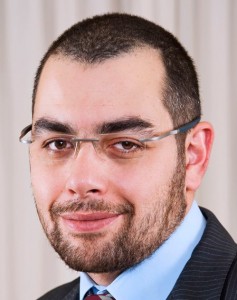
You have to admit that despite all the heartaches that we have come to encounter in Egypt, the place is becoming quite the rollercoaster ride. It is interesting to watch how roles are being exchanged at dizzying velocity. A once villain is now considered prince charming, a once prince charming is now seen as a villain, a once revolutionary has been labeled a traitor and a once seen as traitor has now become a revolutionary. Indeed, each period has its men! More interesting is how this game of musical chairs extends to matters outside home.
Hezbollah
Once seen as an Icon of resistance, the Lebanon based group has indeed seen better days in the court of public opinion. The Shia group which has dragged Lebanon into the 33-day war with Israel in 2006 has garnered a lot of admiration on the heels of this conflict. However controversial and ultimately destructive this conflict was, it boded well with many Egyptians with Hezbolla’s often brash leader Hassan Nasralla catapulted to the heights of fame and called a hero by many Egyptians at the time. In the past two years, the paramilitary group has been seen to be entangled in the Syrian ordeal in support of President Bashar El Assad; this support has taken the group down from the pedestal it once held.
Turkey
During the 2011 Egyptian Presidential Election, everyone and their grandmother were trying to position themselves as the “Egyptian Erdogan”. Erdogan at the time was a successful politician who seemingly had it all figured out. From former presidential hopeful now turned convict Khairat El Shater to former presidential candidates Dr. Abdel Moneim Abolftouh and Dr. Mohamed Selim El-Awa, all wanted to project the aura of the savior of the day. Journalists, writers and economists alike hailed the Turkish experience as the best thing since sliced bread. Following the fall of President Mohamed Morsi and the Muslim Brotherhood dynasty, Erdogan has lost his cool many times over the subject; on one account, he launched a direct attack on Al Azhar Grand Imam Dr. Ahmed El Tayeb sparking a popular outrage against the country at large. Demands of boyocot, diplomatic actions and overall popular discontent have muddied the pristine picture Turkey once had in the minds of many Egyptians.
Hamas
The beleaguered group is virtually on the ropes as far as Egyptian public opinion goes. The Gaza based subsidiary of the Muslim Brotherhood is facing a whole gamut of allegations, ranging from espionage charges involving deposed President Morsi, accusations of involvement in terrorist activities in the Sinai Peninsula to the lingering accusations of jail breaks during the 25 January Revolution. After a heyday in Egyptian public opinion which has seen the famed visit of Ismail Haneya and his sermon in Al-Azhar mosque, the group is currently loosing this wide support. Its close association with the now shunned Muslim Brotherhood is severely hurting the organization. Hamas which is technically classed as terrorist organization is beginning to be perceived just as that.
Saudi Arabia
The Kingdom has bucked the trend and seen a positive reversal of fortunes in Egyptian public opinion. Once seen by many die hard revolutionaries as staunch supporters of former President Mubarak, relations between the two countries have been strained over the course of the past three years. The relationship has even reached a dark moment following the arrest of Egyptian lawyer Ahmed El-Gizawy in April 2012. Angry demonstrations at the time prompted Saudi authorities to close off the Saudi embassy and other consulates in Egypt. Following the change of guards in Egypt, the Kingdom was the first to recognize the legitimacy of the new regime, offering its best wishes to the new interim president just hours after President Morsi was toppled. Saudi King Abdullah, later went on to reiterate his support to the country in the face of a global outcry, and even going further by infusing monetary aid to prop the struggling economy. These series of events have been found very redeeming by many Egyptians.
This spell of change of fortunes comes down to the pace in which current events are unfolding. This speed is pushing people to adopt a binary approach; you either love or loathe and you are either with or against. This is further exacerbated by the ongoing polarization due to the current political conflict. In the midst of it all, people need to make quick opinions – be it informed or not – about anyone and anything. Failure to do so will be perceived as being hesitant or hedging your bets. In this ongoing game of musical chairs, heroes will be made and pariahs and outcasts will continue to emerge. Don’t take any of it as final though as this circus has not yet left town.




